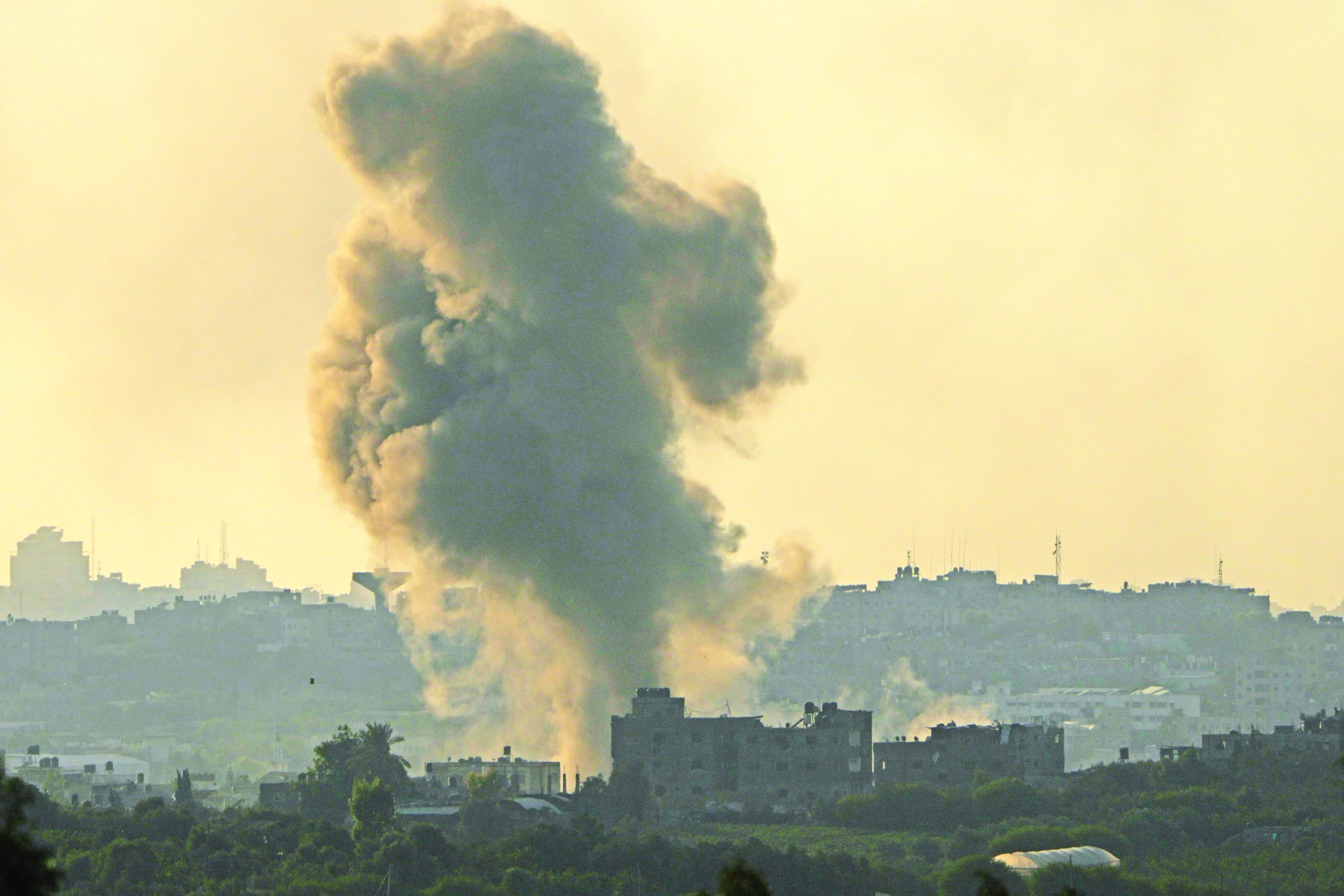This week remained a mix bag in global affairs. Amid the ongoing political twists and turns in the US associated with the upcoming presidential elections, Israel-Hamas war intensified and North Korea raised the tensions for global security as the reports claim its spying satellite is operational.
Health officials in Gaza have reported that over 100 individuals were killed and hundreds more injured by Israeli soldiers while waiting near aid trucks. The Israel Defence Forces, on the other hand, claimed that the casualties resulted from a stampede during the arrival of the trucks. Rear Admiral Daniel Hagari, a spokesperson for the Israel Defense Forces, later stated that numerous individuals had been killed or injured in a struggle to procure supplies from the trucks. “The IDF was there conducting a humanitarian operation to secure the humanitarian corridor and allow the aid convoy to reach its designated distribution point.” He stated. Though neither claim has been verified, this incident has complicated the situation. While reacting on this incident, the US President Joe Biden stated that this incident would complicate ceasefire negotiations currently underway. Also, this week, the US has also come out with its intelligence reports claiming a potential Israeli intervention in Lebanon. Tensions between Israel and the Hezbollah based in Lebanon have escalated with ongoing cross-border exchanges since the conflict with Hamas commenced. With a goal to distance Hezbollah from the border, Israel now intends to persist in its efforts regardless of any potential ceasefire agreement with Hamas. If this actually happens, it will further escalate the war for sure. So far, both the sides have indirectly involved many nations and international institutions in to the conflict that has claimed thousands of lives already. Israel has already stated many times that it will not stop until Hamas is completely eliminated as it has taken 7 October’s attack of Hamas on Israel on its national pride and existence. Hamas is also not stepping back, and is strategically fighting to show Israel in a bad light bringing in humanitarian angle in Gaza. However, Hamas’s armed faction in Gaza seems to be engaged in an imbalanced conflict against the most powerful military in West Asia, that too after a confrontation triggered by Hamas’ assault on Israel on 7 October 2023.
Hamas is tactically manoeuvring to position itself as the potential victor amid the devastation in Gaza, aiming to showcase a historic triumph by enduring Israel’s superior firepower and asserting its leadership of the Palestinian national movement. But this tactical move of Hamas so far does not seem to be resulting in its strategic victory. On the other hand, Israel, despite being the strongest military power in the region, could not become successful in eliminating Hamas. In this tussle, Gaza’s population remains the most affected by the conflict, suffering from numerous casualties caused by air and ground attacks. Many are also in urgent need of basic necessities such as food, medicine, and security. According to Palestinian health authorities, approximately 30,000 residents have lost their lives in this crisis without distinguishing between combatants and civilians. However, Israeli officials argue that while the overall death toll is accurate, they believe that more than one-third of those killed were affiliated with Hamas rather than being non-combatant civilians. This is an alarming situation where leaders and international institutions should intervene and find out the solution.
Another alarming news comes from North Korea. A Netherlands-based space expert has stated that North Korea’s initial spy satellite is still operational, as changes in its orbit suggest Pyongyang is able to control the spacecraft successfully. However, the specific capabilities of the satellite remain unclear. Despite claims by Pyongyang’s state media that it has captured images of sensitive military and political sites in various nations, including South Korea and the US, no actual imagery has been released. Independent radio trackers have not picked up any signals from the satellite. According to data from the US–led Combined Space Operations Centre cited by Mr Langbroek, from February 19 to 24, Malligyong-1 conducted exercises to increase its perigee (the lowest point in its orbit) from 488 km to 497 km. This exercise also indicates that Malligyong-1 remains active and under North Korean control, an assertion that was previously contested. South Korea’s Defence Ministry also confirmed that this assessment aligns with their own findings regarding the status of the satellite; however, they declined further comment on individual analyses. Defence Minister Shin Won-sik added this week that there were currently no indications of other activities or reconnaissance being performed by the satellite. However, this news has made South Korea and the US cautious of possible North Korean activities. This week itself, the South Korean and US armed forces jointly declared that they will be conducting Freedom Shield drills in the month of March. These exercises will include computer-simulated command post training as well as a range of individual field training activities. This may invite further reaction from North Korea.
In this complex game of global politics, the players need to understand that they all are small pieces of a huge maze. They are all connected to each other, and hence should pull the strings very carefully.
The author is Professor, School of International Studies, JNU







